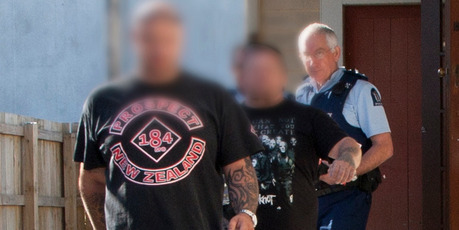The lawyer for a man linked to a Nelson motorcycle gang has asked a court "who guards the guardians'' in a case in which police manufactured a fake search warrant during an undercover operation.
Prosecutions against 21 people connected with the Red Devils' gang were stayed by a High Court judge last October after the police actions came to light.
Justice Simon France put a halt on more than 150 charges going further in the court system after police were found to have committed a fraud on the courts during the operation.
Police manufactured a fake search warrant, created an invented signature of a court official to back it up, then staged a false arrest of an undercover agent.
The operation was conducted over an 18-month period between 2009 and 2011.
The Crown was at the Court of Appeal at Wellington today, apaling against Justice France's ruling.
Robert Lithgow, who appeared for one of those connected to the gang, Terry Jones, said criminal law was not there to punish "at all costs...the end does not justify the means''.
"Who guards the guardians,'' he asked.
Crown lawyer Cameron Mander said while there had been an abuse of process by police during the operation, a resulting trial on the charges would not have continued that abuse of process - especially if the ``tainted evidence'' had not been presented in court.
But Mr Lithgow said the justification for staying the prosecutions was to stop the abuse of process.
The false search warrant was a "forgery'' and obtained through a false oath given to the court, Mr Lithgow said.
"That kind of abuse of process is a humiliation of the justice system.
"That is so abhorrent, that has to be confronted.''
Mr Mander had argued that ruling for a stay of prosecutions was not an option available for Justice France to use.
"The approach taken by his honour was wrong in law,'' Mr Mander said.
But Mr Lithgow disagreed and said the discretionary use of the rule was available for the judge.
One of the judges hearing the case today, Justice Christine French, asked Mr Mander whether, hypothetically, if a police officer was to torture a suspect but that evidence did not make it to a resulting trial, should that trial go ahead.
Mr Mander said if the torture did not affect the trial then the trial should still go ahead. It would not mean the court was endorsing the torture, he said.
The hearing is due to finish tomorrow.
By Rebecca Quilliam Email Rebecca